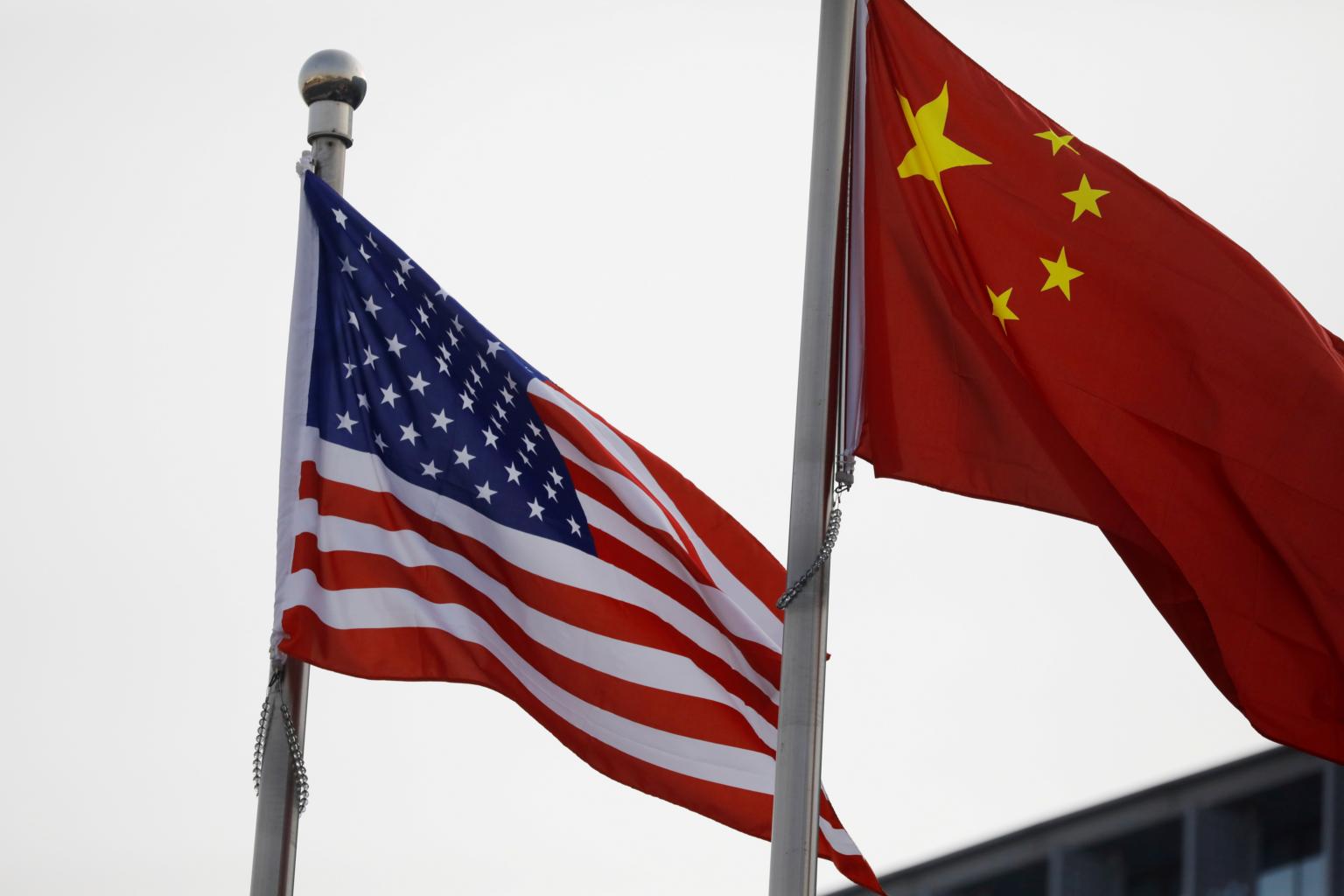Biden to amend Trump's China blacklist, targeting key industries
Sign up now: Get ST's newsletters delivered to your inbox

The Trump order targeted companies owned, controlled or otherwise affiliated with the Chinese military.
PHOTO: REUTERS
Follow topic:
WASHINGTON (BLOOMBERG) - US President Joe Biden plans to amend a ban on investments in companies linked to China's military this week, after the Trump-era policy was challenged in court and left investors confused about the extent of its reach to subsidiary firms, people familiar with the matter said.
Under Mr Biden's amended order, the Treasury Department will create a list of companies that could face financial penalties for their connection to China's defence and surveillance technology sectors, the people said. Until now, the financial sanctions and selection of targeted companies were tied to a congressionally-mandated Defence Department report.
The amended order, which Mr Biden is expected to sign later this week, will change the criteria for blacklisting entities to capture those that operate in the defence or surveillance technology sectors. The Trump order targeted companies owned, controlled or otherwise affiliated with the Chinese military.
The Biden administration is set to keep a large number of previously listed entities and Treasury's Office of Foreign Assets Control will add new entities as part of the order, one of the people said. Treasury would consult the State and Defence departments in the listing process.
Spokespeople for the White House and the Treasury Department did not respond to requests for comment.
Some stocks related to China's defence industry dropped on Thursday, led by AVIC Jonhon Optronic Technology and AECC Aviation Power, while already-blacklisted Advanced Micro-Fabrication Equipment fell as much as 2.9 per cent. Xiaomi Corp., which was dropped from the list last month after challenging the Trump administration order in a lawsuit, advanced 2.2 per cent in Hong Kong.
After two Chinese companies successfully challenged the order, Mr Biden's team said a revision of the policy was necessary to ensure it was legally sound and sustainable in the long-term. By shifting responsibility to Treasury, the Biden team aims to solidify the legal standing for the penalties, one of the people said.
The administration's review of the ban has been closely watched on Capitol Hill, where lawmakers are eager for a tougher stance on Beijing.
Senator Tom Cotton, an Arkansas Republican, said in a statement on Wednesday (June 2) that "it's imperative the US government continue to expand this list of Chinese military companies - these firms shouldn't have access to US technology and capital markets. We are arming and funding our leading competitor."
In a letter this week to Defence Secretary Lloyd Austin, a bipartisan group of lawmakers - including Florida Republican Senator Marco Rubio, Arizona Democratic Senator Mark Kelly and Representative Liz Cheney, a Wyoming Republican - demanded the publication of a new list of Chinese military-affiliated entities. The list was due April 15 and is mandated by last year's defence authorisation bill.
"The US government must continue to act boldly in blocking the Chinese Communist Party's economic predation against our industrial base," they said in the letter. "We must not allow China to erode America's military primacy."
Mr Biden's position has been just as scrutinised on Wall Street, where Mr Trump's order caused confusion over whether the investment ban applied to an array of companies that might be connected - either as a subsidiary or by carrying a similar name - to those on the blacklist.
Amid the confusion, the administration last month pushed back a deadline to halt investments in subsidiaries, even though a ban on the listed parent companies has been in place since November.
The White House and Treasury will also clarify that the prohibitions apply to subsidiaries of listed companies only if that subsidiary is itself listed by Treasury, the people said. The previous administration aimed to also capture those companies whose names closely match the listed entities.
"Providing Treasury with authority over which Chinese military companies are subject to capital markets sanctions would tend to help Wall Street maintain the status quo to the extent possible," said Mr Roger Robinson Jr., former chairman of the Congressional US-China Economic and Security Review Commission.

